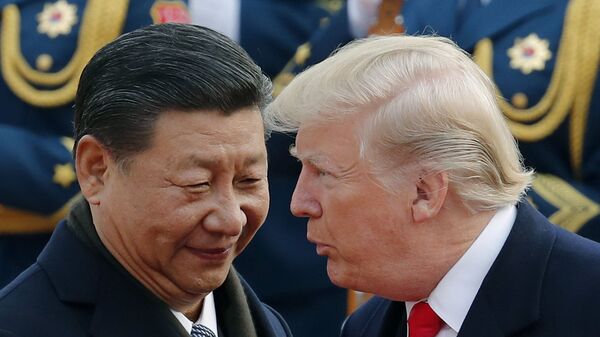Chairman of the Board of Directors of Societe Generale (SocGen) Lorenzo Bini Smaghi has suggested that the trade war between the US and China, which has been going on for over a year now, is likely to come to an end by the spring of 2020. The resolution of this conflict is likely to be tied to the new American electoral cycle, SocGen's chairman opined.
"The presidential elections will be taking place in the US in a year and, at some point as I hope, Trump must close the deal [on trade with China]. This will be [useful] for him as president to show that he has achieved something prior to the 2020 election", he said.
Bini Smaghi added that by spring next year Trump can show "some positive signal" marking the end of the war with a "certain degree of success". The economist added that it's not in the US president's interests to run for re-election without first ending a conflict that negatively affects the country's economy.
Similar thoughts were previously expressed by Hungarian-American billionaire George Soros, who praised Trump's achievements with regard to Washington’s policy on China, but feared they could be lost in POTUS’ race to be re-elected. He called on US congressmen to adopt a bill limiting the president's ability to namely lift restrictions against Huawei, using them as a "bargaining chip" to close the trade deal with Beijing by the 2020 elections.
The trade war was triggered by the US imposing hefty tariffs on Chinese steel and aluminium in 2018, citing the country's alleged abuse of existing trade practices. They were later extended and several more rounds of tariffs imposed with the latest taking place on 1 September 2019.
....on October 1st, we have agreed, as a gesture of good will, to move the increased Tariffs on 250 Billion Dollars worth of goods (25% to 30%), from October 1st to October 15th.
— Donald J. Trump (@realDonaldTrump) September 11, 2019
Beijing retaliated each time by symmetrically taxing US imports. The next US move is scheduled for 15 October when 250 billion dollars-worth of goods will be slapped with 25-30% tariffs.
The two countries have been engaging in talks since last year to reach a new trade deal with Trump arguing that China needs it "badly" and will eventually negotiate it with the US. These talks have borne no fruit so far. The latest round took place on 31 July 2019 and failed to deliver a breakthrough.




